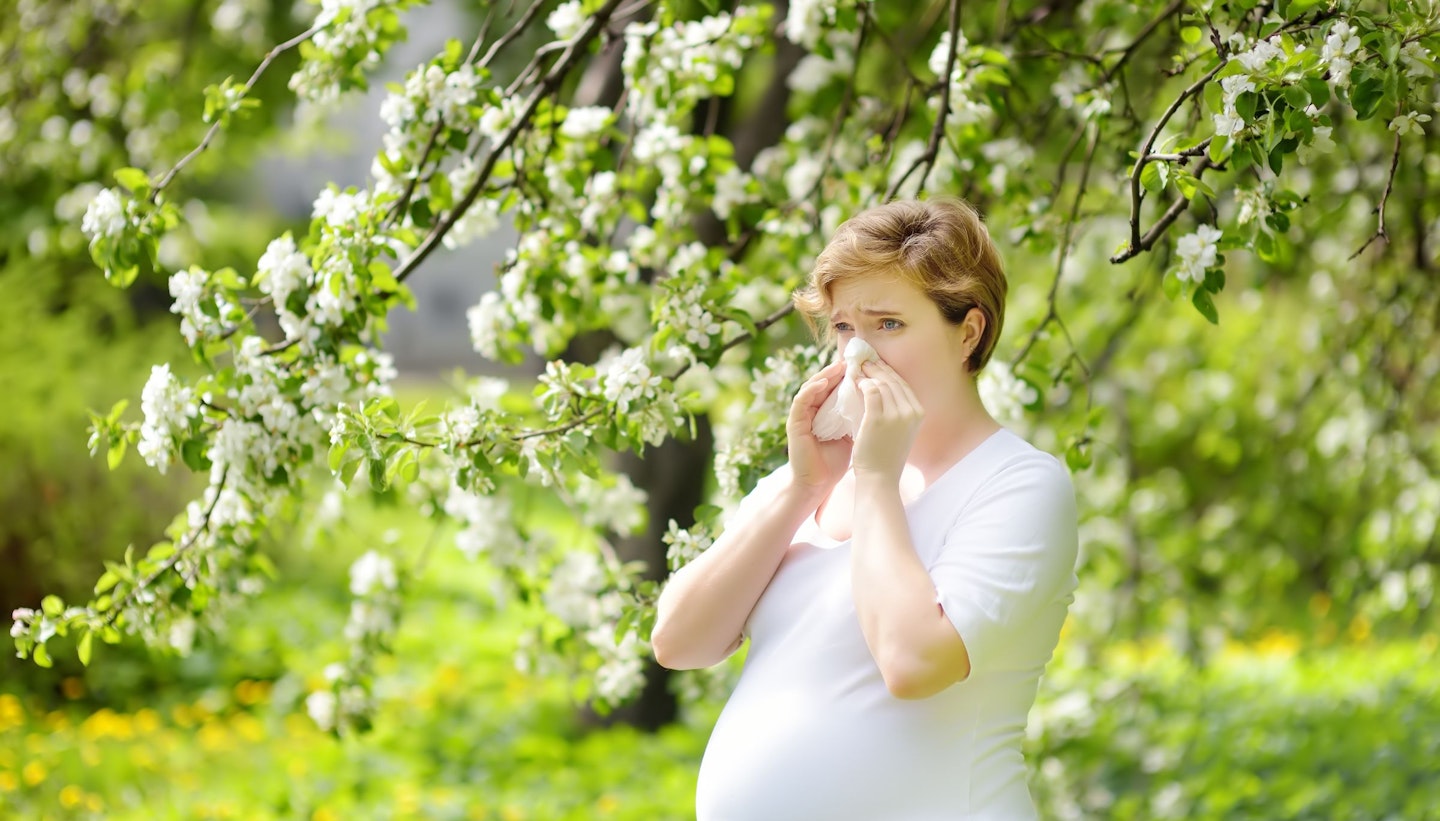Pregnancy can bring many new changes, and for some, it also means dealing with pesky allergies. If you’re experiencing hay fever or other allergic reactions during pregnancy, you might be considering antihistamines. Approximately 10% to 15% of expecting parents use antihistamines to manage symptoms like allergic rhinitis (runny nose), hives, nausea, asthma, and indigestion.
When exploring options like cetirizine or fexofenadine, you may wonder, "Can you take antihistamines during pregnancy?" and "What is the safest antihistamine in pregnancy?" Here’s what you need to know about using antihistamines in pregnancy, including their safety and efficacy with expert insights from Charlotte Hoskin, Consultant Midwife at My Expert Midwife and Independent Prescriber.

Are antihistamines safe during pregnancy?
When it comes to managing allergy symptoms, many expectant mothers wonder if antihistamines are a safe option. It is not advisable to take antihistamines while pregnant, unless you have checked with your doctor first.
Howevever, Charlotte says, loratadine (Clarityn®) and cetirizine (Benadryl One-a-Day®, Zirtek®, Piriteze®, Pollenshield®) are often recommended as the safest antihistamines during pregnancy. Research has shown no significant concerns regarding birth defects linked to these medications. However, while current studies suggest they are safe, ongoing research continues to monitor their effects.
According to NIH: "The American College of Obstetricians and Gynecologists (ACOG) and The American College of Allergy, Asthma and Immunology (ACAAI) have recommended chlorpheniramine and tripelennamine as the antihistamines of choice for pregnant women. They also recommend cetirizine and loratadine after the first trimester in patients who cannot tolerate or do not respond to maximal doses of chlorpheniramine or tripelennamine."
However you should really avoid antihistamines unless they have been prescribed by your GP.
To use or not use antihistamines in pregnancy
Figuring out whether to take antihistamines while you’re pregnant involves weighing the pros and cons. Charlotte suggests talking it over with your doctor to understand how these meds might help you and what risks they might pose to your baby, depending on how far along you are.
If antihistamines aren’t your preferred choice, there are alternative treatments like nasal sprays and eye drops that are also safe during pregnancy. Always consult with your pharmacist or GP to explore these options.

Expert-approved tips for allergy relief without medication
If you’re looking to tackle your allergy symptoms without reaching for medication, Charlotte offers some straightforward, practical advice:
-
Avoid allergens: The best way to handle allergies is to stay away from what triggers them. If you know certain things set off your symptoms, do your best to avoid them.
-
Keep your home clean: Regular vacuuming and dusting can go a long way in reducing allergens in your living space. Think of it as giving your home a fresh start! Cleanfluencer Laura Mountford has got some great cleaning hacks here.
-
Use nasal barriers: A simple trick is to apply a thin layer of Vaseline to your nostrils. This acts as a barrier to prevent allergens from sneaking in and irritating your sinuses.
For Hay Fever specifically:
-
Wear sunglasses: Large sunglasses can help protect your eyes from pesky pollen. They’re not just a fashion statement—they can keep those allergy-triggering particles out of your eyes.
-
Keep windows and doors closed: This might seem like a small thing, but it helps keep the pollen outside where it belongs. It’s like creating a pollen-free zone in your home.
-
Avoid hanging clothes outside: Drying clothes outdoors allows pollen to settle on them. Choose indoor drying instead to keep your clothes pollen-free. We recommend Lakelands's Dry
Deluxe 3-Tier Heated Airer, £199.99 which features foldable heated shelves to speed up drying. Say goodbye to pollen and musty smells! -
Shower daily: After spending time outside, a quick shower and fresh clothes can wash away pollen and other allergens that might be clinging to your skin and hair.
These easy, non-medication strategies can help you manage your allergy symptoms during pregnancy, keeping you and your baby comfortable and safe without needing to rely on medications.
Check out my_expertmidwife TikTok video on hay fever relief during pregnancy.
About the expert
Charlotte Hoskin is a Consultant Midwife and Independent Prescriber at My Expert Midwife. Her career began with a fascination for pregnancy and birth, inspired by her experiences helping her family. With extensive experience in both hospital and community settings, Charlotte is dedicated to providing comprehensive care to pregnant women, including those with complex needs. She’s also a mum of two, with her birth experiences featured on Channel 4’s One Born Every Minute.
About the author
Anne Lora Scagliusi is a Senior Digital Writer at Mother & Baby. She is a Scotland-based journalist with over a decade of international writing experience, specialising in women’s health, maternal mental health, and wellness. Her work has been featured in Vanity Fair, Marie Claire, and Glamour and has appeared on several Vogue global editions. She is mum to a one-year-old bambino and lives between Italy and the UK.
